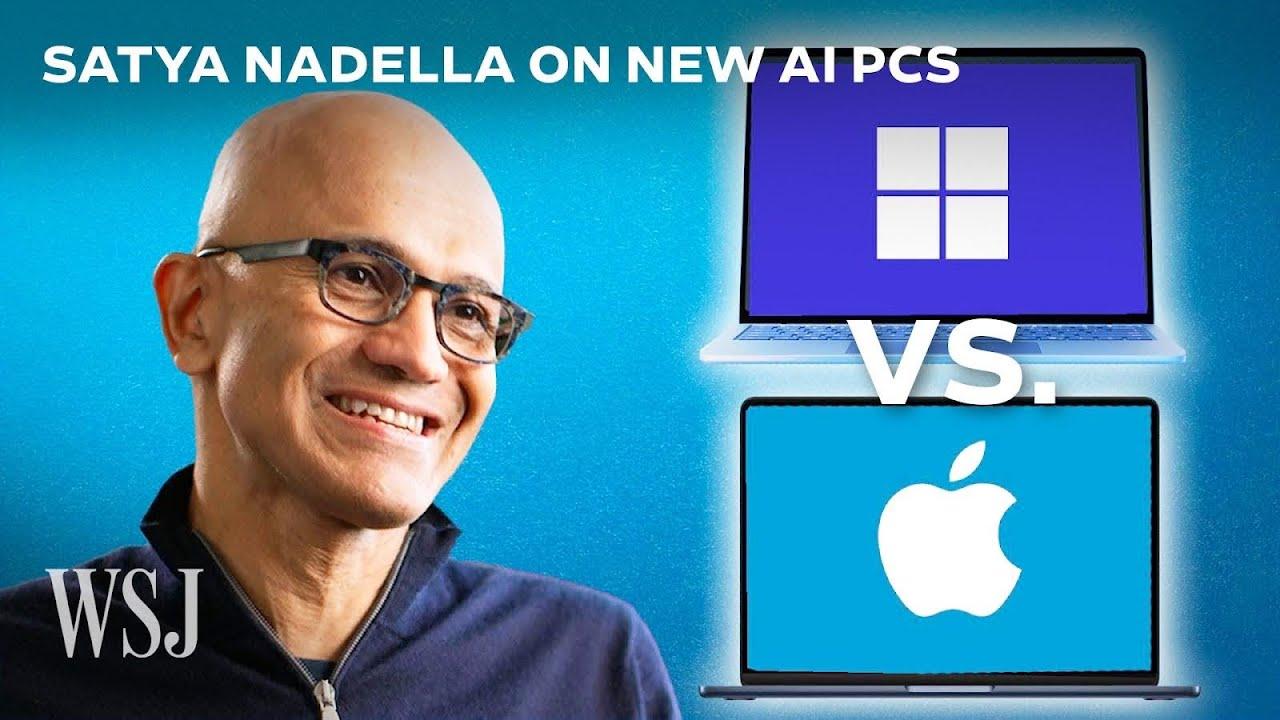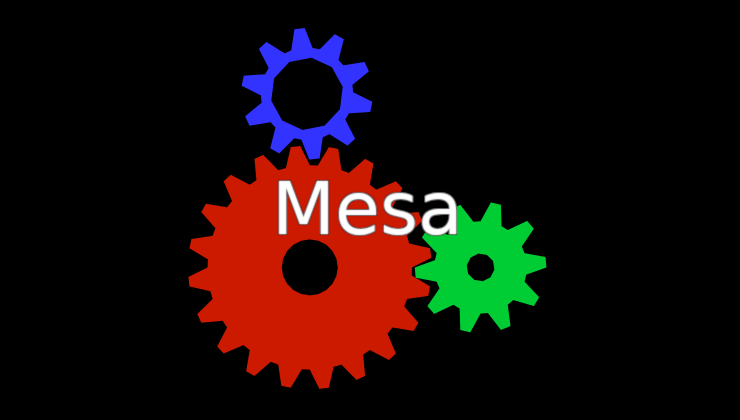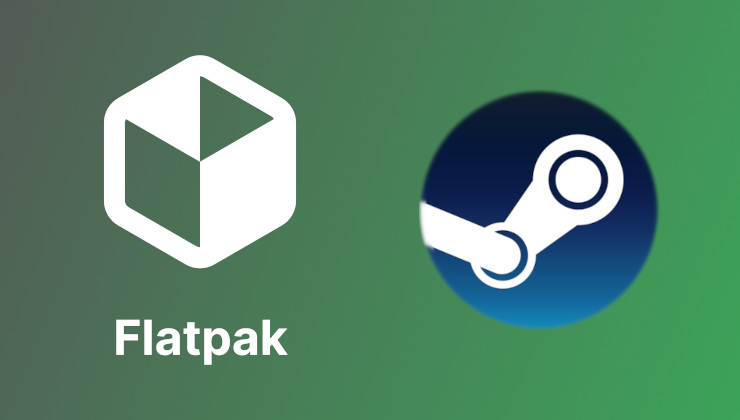This will be preaching to the choir for some readers, as you didn't exactly need another reason not to use Windows right? Microsoft's new Recall AI will take screenshots of everything you do and that sounds truly terrible. Spyware as a service, courtesy of Microsoft's push to stick AI into everything.
You might think I'm being perhaps a bit sensational here or even clickbaity, but no, this is actually genuinely what Recall does. As Microsoft said: "Recall uses Copilot+ PC advanced processing capabilities to take images of your active screen every few seconds", and not only just on their new ARM PCs, they said it will roll out to x86 platforms too via a Windows update.
What's the point? It's to give you a special timeline of your day (it stores up to 3 months worth of what you do), allowing you to go back through it and find things, highlight things, open the original application shown in pictures and eventually open up whatever you were working on in the right application with the right content at the time. Basically, some fancy-pants AI search going over everything you've done.
Microsoft do say the storage is local to your device, and is "protected using data encryption on your device" and even using BitLocker if you're on Windows 11 Pro or an enterprise Windows 11 SKU. Microsoft also claim it doesn't share it anywhere else, at all, no advertisers or Microsoft themselves. But, how far do we trust data being fed into a black-box AI that no one can really see what it's doing huh?
Here's the thing: straight from their own FAQ (scroll down) it notes how "Recall does not perform content moderation" and it will "not hide information such as passwords or financial account numbers". Oh wow, that sure sounds good for your privacy doesn't it. But don't worry it "does not take snapshots of certain kinds of content, including InPrivate web browsing sessions in Microsoft Edge" and "material protected with digital rights management (DRM)" is also protected. We can't have Netflix or Disney getting annoyed with it taking a shot of that movie you watched, nope.
I'm not even what you may call a "privacy nut". I use big-name stuff all the time, my main browser is plain ol' Google Chrome and you get the idea. But still, this is super weird.
What happens if someone else gets access to your device? Lost, stolen, sold (and you forgot to wipe) and so on. If you get hacked, they'll end up seeing everything, it's another major attack point. Yeah great it's stored on your device, but people and companies get broken open all the time, malicious orgs will have a real party with your data. There's plenty of other times people may end up with access to your device to think about, I'm not going to list them all of course.
You can hear Microsoft CEO Satya Nadella speak about it to The Wall Street Journal, skip to 3:23:

Direct Link
No thanks. I'll pass, forever. I never want this. It feels creepy and gross.
The UK's Information Commissioner's Office (ICO) is already looking into it. No doubt others will be too. A privacy nightmare for everyone.
If you wish to try Linux, I can recommend Kubuntu which is my daily-driver.
1. Games. But Valve/Proton have pretty much solved that one.
2. Scrivener, writing software that isn't available on Linux. That's basically the only thing keeping me on the platform.
Every new AI feature Microsoft adds is another reason to leave. Which presumably isn't their intention, but here we are.
2. Scrivener, writing software that isn't available on Linux. That's basically the only thing keeping me on the platform.
Did you try it under WINE lately? Somebody reported (I think on this site, something geo-related?) that programs not related to games at all also profit from the WINE improvements.
People always seem to get worked up over nothing, it's as if they're constantly searching for something to worry about. The article discusses the potential consequences if someone were to steal your device and access your personal information. However, if someone gains access to your computer, they could uncover much more than just random screenshots taken out of context. If privacy concerns you, you have the option to disable Recall from saving anything anyway.How's the job at Microsoft going?
It seems like most people are simply going about their day with their Androids or iPhones, casually browsing through Instagram or YouTube, maybe dropping a comment on Reddit or Twitter. But where do we draw the line on privacy? I say, let people choose their tools and determine what they're comfortable sharing without resorting to unnecessary fear tactics.
I say, let people choose their tools and determine what they're comfortable sharing without resorting to unnecessary fear tactics.
'letting people choose' -- sure, on the basis of information that's relevant to their needs & concerns. Which is what articles like this are trying to help with.
However, if someone gains access to your computer, they could uncover much more than just random screenshots taken out of context.This right here makes me think you're not arguing in good faith. It seems a bit of a stretch to describe a setup that takes a screenshot regularly every few seconds over the whole time you're using your computer as "random screenshots taken out of context". To the contrary, they are a regular sequence of screenshots which cover the whole context.
A quick google suggests that it can be done, although it may be tricky to get working.2. Scrivener, writing software that isn't available on Linux. That's basically the only thing keeping me on the platform.
Did you try it under WINE lately? Somebody reported (I think on this site, something geo-related?) that programs not related to games at all also profit from the WINE improvements.
I would trust such a feature if it was opensource.. for instance if a DE on Linux implemented this feature I would use it without batting an eye considering I could just go look at the source code to see what its doing and mostly likely use my OWN ai models to boot.. only way folks gona feel conforble using this from Microsoft is if they opensourced it.. To be frank it should be a LAW features such as this must be opensourced regardless if the OS is or not.
I wouldn't
The data is still stored on the computer and made readily accessible.
A malicious actor on my system(this can just be chrome looking for delicious data) can take it and run with it.
And thats on you not the DE. but fact is this is Linux if a DE did implement such a feature 1.) you wouldn't be required to use such a feature. 2 .) it would 99% be a opt in not opt out. 3.) it would most likely be encrypted
Actually I think encryption wouldn't be a feature if it were open source.
Secret management is important in open source security considerations and the secret would in this case be stored on the same place as the data.
The rest of your points are convincing and yes this's certainly on me.
I wasn't saying the feature itself would be encrypted but the end data on your device :)
I would trust such a feature if it was opensource.. for instance if a DE on Linux implemented this feature I would use it without batting an eye considering I could just go look at the source code to see what its doing and mostly likely use my OWN ai models to boot.. only way folks gona feel conforble using this from Microsoft is if they opensourced it.. To be frank it should be a LAW features such as this must be opensourced regardless if the OS is or not.
I wouldn't
The data is still stored on the computer and made readily accessible.
A malicious actor on my system(this can just be chrome looking for delicious data) can take it and run with it.
And thats on you not the DE. but fact is this is Linux if a DE did implement such a feature 1.) you wouldn't be required to use such a feature. 2 .) it would 99% be a opt in not opt out. 3.) it would most likely be encrypted
Actually I think encryption wouldn't be a feature if it were open source.
Secret management is important in open source security considerations and the secret would in this case be stored on the same place as the data.
The rest of your points are convincing and yes this's certainly on me.
I wasn't saying the feature itself would be encrypted but the end data on your device :)
The data wouldn't be encrypted either.
It could be locked behind permissions, but since the key and the data would have to be accessible by the same code secret management wouldn't work.
They would rely on full disc encryption(which is a system function) for physical protection and implement some complicated permission management for access to the data, but the "recall" code wouldn't do any encryption, since anyone with access to the encrypted data apparently has access to the encryption key.
People always seem to get worked up over nothing, it's as if they're constantly searching for something to worry about. The article discusses the potential consequences if someone were to steal your device and access your personal information. However, if someone gains access to your computer, they could uncover much more than just random screenshots taken out of context. If privacy concerns you, you have the option to disable Recall from saving anything anyway.How's the job at Microsoft going?
It seems like most people are simply going about their day with their Androids or iPhones, casually browsing through Instagram or YouTube, maybe dropping a comment on Reddit or Twitter. But where do we draw the line on privacy? I say, let people choose their tools and determine what they're comfortable sharing without resorting to unnecessary fear tactics.
I just wanted to share what I noticed from the article, but at least you know I'm right.
If MSFT could harness the power of all the desktop windows machines, they would be saving a crap-ton of money.Well, it's already a proven business-model thanks to all of those infamous botnets!
Does everybody remember the SETI project? Lots of projects like it but, they sliced up the data into chunks and then had several computers checkout and process the data. One of the first real distributed computing projects. I'm sure it saved the SETI project a boat load of money. I wonder if MSFT will be doing the same thing. Imagine MSFT casually downloading chunks of training data to your computer for processing. Surely under the guise of updating the local language model. If MSFT could harness the power of all the desktop windows machines, they would be saving a crap-ton of money.
I would advice against this, because they would've to send their proprietary training data to those pcs and I can tell you that I would've no trouble technically, ethically and/or legally starting a business that checks for copyright holders and/or sexual abuse victims or their protected material is used for training on my computer.
An illegal use case would be to start that same bussiness, but sell the data to the highest bidder.
Remember OpenAI thinks this is high quality data. Just a few passes through a real garbage filter and you got some real stuff.
Last edited by LoudTechie on 25 May 2024 at 12:09 pm UTC
We can do some good things with AI and some bad things. This is a bad one.
Also, Nadela said it's your computer.Yet Windows dropped the term "My Computer" some time ago! They replaced it with "This Computer", which was obviously to lay the groundwork for control being taken away from users.
Windows and owned PC? By whom? By Microsoft?I believe that's the idea, yeah. Pretty sure you already don't own your PC if you use Windows on it, though admittedly having not used it in 20 years, and only having checked things for others who needed the info at various points, I'm not up-to-date on their current terms.
What is funny is that RMS was joked about they told: "If you use computer and OS is not your, that computer is not your". Sorry, but when people will stood that? TV employee told/comment: "So you told people they should pirate Operating Systems?".
An interesting take on Copilot+RecallAn excellent and very useful read - many thanks for linking to it!
Guess I'll get my big'Ol'bucket of popcorn ready.












 An idiots guide to setting up Minecraft on Steam Deck / SteamOS with controller support
An idiots guide to setting up Minecraft on Steam Deck / SteamOS with controller support How to install extra software, apps and games on SteamOS and Steam Deck
How to install extra software, apps and games on SteamOS and Steam Deck
See more from me